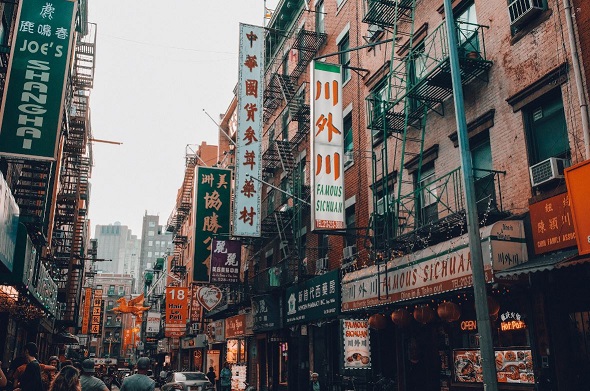Anti-Asian hate crime numbers fell for 1st time since COVID but still above pre-pandemic levels
By Louise Liu
Anti-Asian hate crime numbers fell by 33% from 2021 to 2022, indicating the first decrease in anti-Asian hate since the start of the pandemic, according to recently released FBI crime statistics.
However, anti-Asian hate crime figures remain firmly above pre-pandemic numbers, with 2022 recording more than 200% the amount of anti-Asian hate crimes that occurred in 2019.
As the global pandemic recedes, diminished attention on COVID-19, along with less opportunity to scapegoat Asian Americans for pandemic woes, fewer instances of inflammatory rhetoric from politicians, and reporting fatigue may have contributed to the decrease in recorded anti-Asian hate crimes.
During the peak of the pandemic, almost one in five anti-Asian hate incidents involved language that blamed Asians and Asian Americans for COVID-19, while many others might have been fueled by misplaced concerns of COVID-19.
This rhetoric was reinforced and often encouraged by politicians, who, between March 2021 and 2022, used racist and inflammatory language in 10 percent of their tweets. In many instances, politicians’ tweets had a direct impact on anti-Asian sentiment: For every tweet from former President Trump that mentioned both “COVID” and “China,” there was an 8 percent increase in anti-Asian hate incidents and tweets using the racial slur “c — k.”

Although the national state of emergency for COVID-19 has ended, anti-Asian hate persists. Community reporting sites such as Stand Against Hatred and Stop AAPI Hate are still receiving submissions detailing incidents of anti-Asian hate and harassment, and Asian Americans Advancing Justice | AAJC is concerned about the potential effects of politicians vilifying China in the 2024 election cycle on the Asian American community as a whole. Already we have seen politicians across party lines using anti-China rhetoric, and with the U.S.’s relationship with China being a central topic for debate, it can have dire consequences for the Asian American community who have long battled the “perpetual foreigner” stereotype, regardless of language ability, national origin, or citizenship status.
In fact, the U.S. has a long history of scapegoating Asians and Asian Americans as national security and economic threats. During World War II, misplaced suspicions of Japanese espionage led to the imprisonment of more than 120,000 Japanese Americans in incarceration camps, many of whom were U.S. citizens. Similar sentiment vilifying Japan for the troubled state of the U.S. economy led to the brutal murder of Vincent Chin in 1982, who was mistaken as Japanese American despite being of Chinese descent.
Additionally, hate crimes are notoriously underreported, with Asian Americans being the racial group least likely to report hate crimes to law enforcement. Hesitance to report can be attributed to a variety of factors, including but not limited to language barriers, discomfort with law enforcement, or resignation to the status quo.
Americans Advancing Justice | AAJC strongly denounces the use of inflammatory language that marginalizes, targets, or oppresses any population. For those who are uncomfortable reporting to law enforcement, we encourage you to continue reporting any anti-Asian incidents you experience or witness to our hate tracker Stand Against Hatred. You can report anonymously, and we will keep your information confidential. Your reports provide more accurate information about the landscape of anti-Asian hate crimes and gives Advancing Justice | AAJC the information we need to advocate for policies that address anti-Asian hate crimes and incidents.
Louise Liu is the Anti-Hate Communications Coordinator at Asian Americans Advancing Justice | AAJC.
This article originally appeared in Asian Americans Advancing Justice – AAJC. It is being reprinted here with permission.










